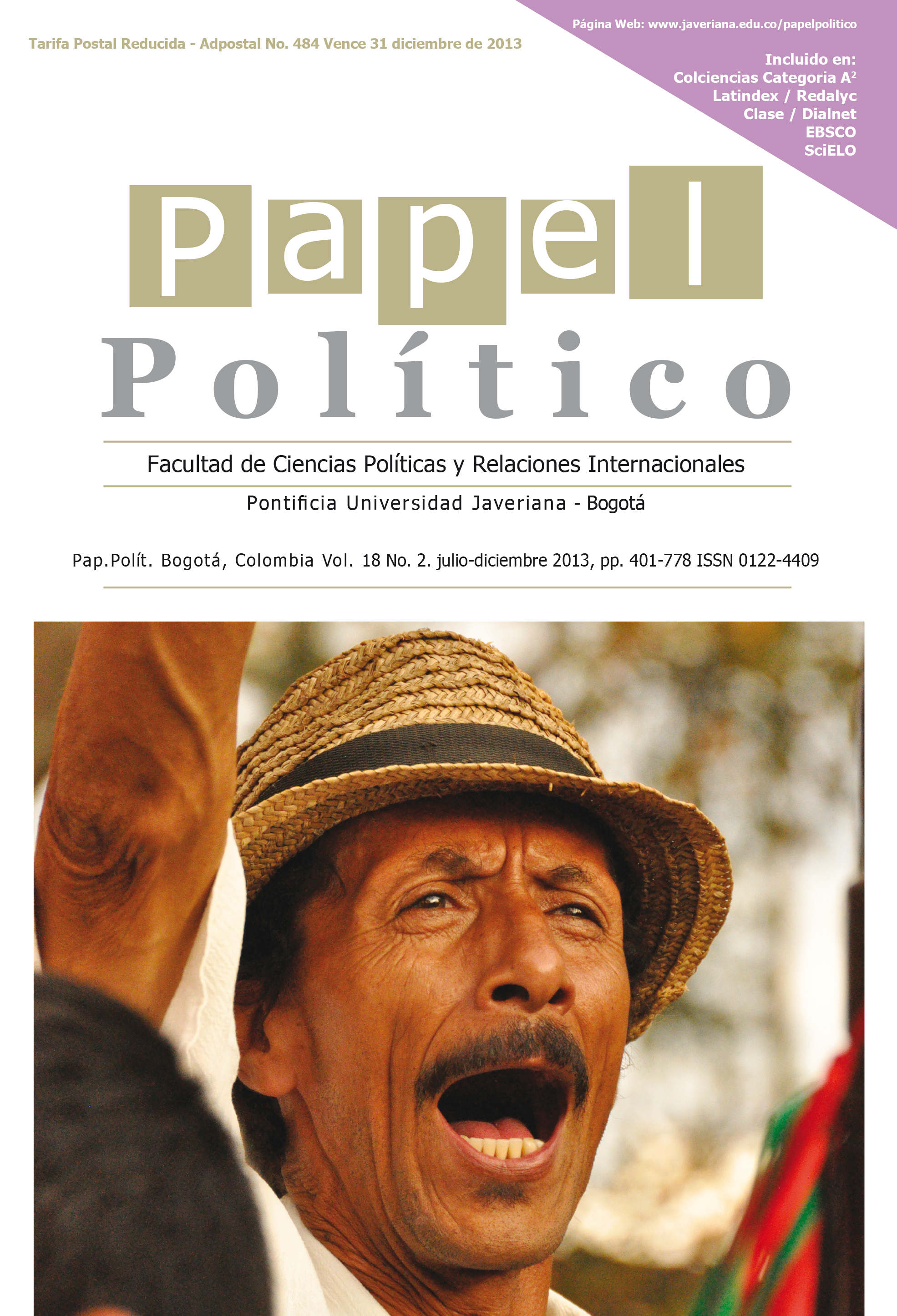Abstract
Just as China is a new and unfamiliar player in Latin America, China’s policymakers seem to have little differentiated knowledge of the region. Studiesand documents from China typically include the Caribbean in their “broad brush approach” and diplomatic representatives are rotated through the region at a swift rate. The fact that only three of the 42 countries in the region published an official reply to China’s 2008 Policy Paper suggests that there is a long way to go towards integration and adequate response, either side of the Pacific.The purpose of this paper is to explore just how differentiated the understanding and strategic vision for Latin America is among China’s policy makers and representatives.This journal is registered under a Creative Commons Attribution 4.0 International Public License. Thus, this work may be reproduced, distributed, and publicly shared in digital format, as long as the names of the authors and Pontificia Universidad Javeriana are acknowledged. Others are allowed to quote, adapt, transform, auto-archive, republish, and create based on this material, for any purpose (even commercial ones), provided the authorship is duly acknowledged, a link to the original work is provided, and it is specified if changes have been made. Pontificia Universidad Javeriana does not hold the rights of published works and the authors are solely responsible for the contents of their works; they keep the moral, intellectual, privacy, and publicity rights.
Approving the intervention of the work (review, copy-editing, translation, layout) and the following outreach, are granted through an use license and not through an assignment of rights. This means the journal and Pontificia Universidad Javeriana cannot be held responsible for any ethical malpractice by the authors. As a consequence of the protection granted by the use license, the journal is not required to publish recantations or modify information already published, unless the errata stems from the editorial management process. Publishing contents in this journal does not generate royalties for contributors.


